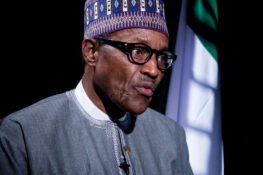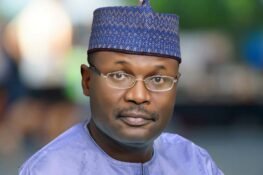International NGOs, research institutions and public health experts in are still scratching their heads over why Africa remains the lowest hit continent from the coronavirus pandemic.
The irony is that there has been very little social distancing, at least in Nigeria and outside of the main cities, nobody wears mask.
In fact, most still don’t believe there anything like COVID-19.
Yet, at the very extreme, projections were made by public health experts that the continent could end up a graveyard for the disease.
The pandemic is yet be contained, but there are no signs Africa could emerge as the epicentre.
25 people million around the world have been infected and 850, 000 of them have lost their lives.
South Africa has been the worst hit on the continent with 625,000 infections and 14,000 deaths.
In virtually every country, independent investigations suggest more people have actually died than the official tally show
In countries like the United States of America, an average of 1,000 people a dying every day from the pandemic, with 180,000 now dead.
In virtually every country, independent investigations suggest more people have actually died than the official tally show.
Every now and then, there are reports of people dying in Nigeria, but their deaths are not being recorded in the official coronavirus count.
Still, the unexplained deaths in Kano back in April suggest there are limits to how much officials can hide large numbers of deaths occurring within a specific region in short periods of time.
If the reports don’t come out from the hospitals, unusual increase in burials will raise suspicions.
So, even within the more than 1,000 reported deaths in Nigeria, the country has not witnessed the mass burials many had predicted.
And now, new cases, even deaths are falling back to the numbers seen in the earliest months of the pandemic, to the extent that Lagos, the most affected state with 18,000 confirmed cases 200 deaths is planning to send students back to school.
And if Lagos is reopening schools, it only a matter of time before all other states do the same. The state governor, Babajide Sanwo-Olu says this decision has been well thought through. As can expected, students from different parts of the country will on the move in the next few weeks.
It’s likely, the announcement made by the Lagos State Government has been well coordinated with other officials, but it would mark the first time, any state is making a major decision on the reopening of institutions without guidance an initial announcement from the Presidential Task Force on COVID-19.
Universities and other tertiary institutions are expected to reopen on September 14, while primary and secondary school students will head back to school on September 21, 2020.
In secondary schools alone, Lagos has approximately 600,000 students.
In addition to primary schools and tertiary institutions, there are well over a million students that will be heading back to schools.
Only the state government has made no announcements or offered guidance on the safety protocols these students are meant to adopt.
The world is learning to live with COVID-19, with businesses opening up and travel restriction being lifted. Large gatherings still pose a threat.
Cinemas and sports stadiums are still closed.
Every now and then, there are reports of people dying in Nigeria, but their deaths are not being recorded in the official coronavirus count
Putting millions of students back in class could prove to be Nigeria’s biggest test on whether the worst is over with its battle with COVID-19.
It is not exactly the same thing with opening places of worship where it could be relatively easier to enforce safety protocols or even the resumption of commercials flights, which the government appears to have executed without it leading to a spike in new cases of the disease.
It not really possible to separate the aviation sector from the hospitality industry.
In a matter of days, international flights are supposed to resume.
Yet, most hotels and restaurants are still shut.
No one has said where international travelers who aren’t Nigerians are supposed to eat and sleep.
It is not a secret, virtual classes for tertiary students, didn’t really take off in Nigeria.
And for primary school students, there were suggestions students would be given lesson through the radio, the kind of ideas you will hear only in Nigeria.
There is a lot to learn from how other countries have reopened their schools.
Since universities in the United States started in-person classes some two weeks ago, reports say there have been at least 8,600 new cases of the coronavirus across some 36 states.
Now some of them are been forced to scale back on the number of classes and number of students in campuses.
What is clear from the rise in infections is that students cannot help but disregard social distancing protocols.
A million students are about to start commuting from one end of Lagos to another several times a day.
That could mean an increase in cases and maybe more tests than usual.
Sanwo-Olu probably has a plan for all this.








